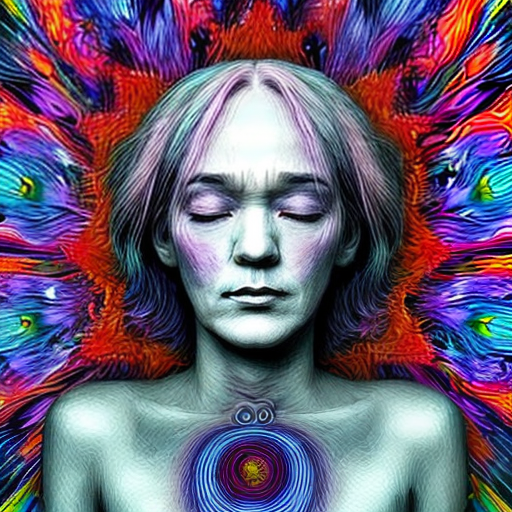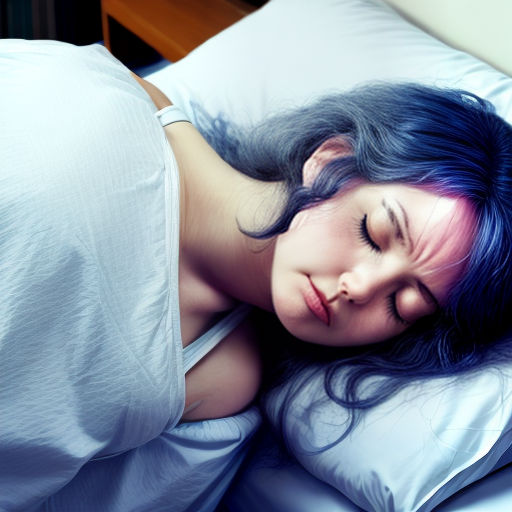
How Cannabinoids Affect Dream Sleep: Unraveling the Mystery
Discover the intriguing relationship between cannabinoids and dream sleep, exploring how THC and CBD influence REM sleep, dream recall, and sleep quality.
In recent years, there has been a surge of interest in how cannabinoids affect dream sleep, particularly THC and CBD, affect our sleep and dreaming experiences. This article aims to shed light on the intriguing relationship between cannabinoids and dream sleep. We will explore how THC and CBD influence REM sleep, dream recall, and overall sleep quality.
First off, it's important to understand the basics of cannabinoids. Cannabinoids are compounds found in the cannabis plant that interact with our body’s endocannabinoid system (ECS). The ECS is responsible for managing homeostasis throughout the body, and it’s believed that cannabinoids can affect this system in various ways.
Understanding the Science of Sleep
Sleep Cycles and Stages
Sleep is a complex process that involves several stages and cycles. A complete sleep cycle typically consists of four stages, including Non-Rapid Eye Movement (NREM) sleep stages 1-3 and Rapid Eye Movement (REM) sleep.
The Role of REM Sleep
REM sleep is the stage in which most dreaming occurs. During this phase, brain activity increases, and our body undergoes temporary paralysis to prevent us from physically acting out our dreams. REM sleep is crucial for memory consolidation, learning, and overall cognitive function.

What are Cannabinoids?
THC and CBD
Cannabinoids are compounds found in the cannabis plant, with the most well-known being delta-9-tetrahydrocannabinol (THC) and cannabidiol (CBD). THC is responsible for the psychoactive effects of cannabis, while CBD has gained popularity for its potential therapeutic benefits. Check out this article on taking CBD for sleep.
Endocannabinoid System
Our body has a biological system called the endocannabinoid system (ECS), which plays a crucial role in regulating various physiological processes, including sleep. Cannabinoids interact with the ECS, influencing our sleep patterns and dreaming experiences. We’ve discussed extensively the role that CBG can play in the role of sleep here.
How Cannabinoids Affect REM Sleep
THC and REM Sleep
Research has shown that THC can reduce the amount of time spent in REM sleep. This can result in fewer dreams and less vivid dream experiences. However, the effects of THC on REM sleep may vary depending on the individual and the dose.
CBD and REM Sleep
Unlike THC, CBD does not have a direct impact on REM sleep. However, it may help improve sleep quality by reducing concerns and promoting calm. This can indirectly affect dreaming experiences by promoting deeper and more restorative sleep.

The Impact of Cannabinoids on Dream Recall
Cannabinoids can influence our ability to remember dreams. Since THC reduces REM sleep, it may also lead to less dream recall. Conversely, CBD might improve dream recall by enhancing overall sleep quality. If you’re curious which cannabinoids we recommend for dream recall and sleep management, check out our article here.
Pros and Cons of Cannabinoid Use for Sleep
Cannabinoids offer both benefits and drawbacks when it comes to sleep. While they can help improve sleep quality, enhance calm, and refuce discomfort, they may also interfere with REM sleep and dreaming experiences. It’s important to consider the pros and cons carefully before using cannabinoids for sleep.
Expert Tips on Using Cannabinoids for Better Sleep
Finding the right balance between THC and CBD when using cannabinoids for sleep is crucial for achieving optimal sleep quality without sacrificing REM sleep and dreaming experiences. Here are some expert tips to help you navigate the world of cannabinoids and sleep:
- Start low and go slow: If you're new to using cannabinoids for sleep, begin with a low dose and gradually increase it over time. This approach allows you to observe the effects on your sleep patterns and make adjustments as necessary.
- Experiment with different ratios: The ideal THC to CBD ratio for sleep may vary from person to person. Try experimenting with different combinations to find the balance that works best for you. For instance, some individuals may prefer a higher CBD to THC ratio to minimize psychoactive effects while still benefiting from the sleep-enhancing properties of both cannabinoids.
- Consider the timing of ingestion: The time at which you consume cannabinoids can impact your sleep. For example, taking THC closer to bedtime may help you fall asleep faster, but ingesting it earlier in the evening may give your body more time to metabolize the compound, potentially reducing its impact on REM sleep.
- Monitor your sleep quality: Keep track of your sleep patterns and overall sleep quality when using cannabinoids. This information can help you determine whether the cannabinoid combination you're using is beneficial or if adjustments are needed.
- Consult with a healthcare professional: If you have existing health conditions or are taking medications, it's essential to consult with a healthcare professional before using cannabinoids for sleep. They can provide guidance on potential interactions and recommend appropriate dosages based on your individual needs.
- Maintain good sleep hygiene: While cannabinoids can help improve sleep quality, it's essential to maintain good sleep hygiene practices. Establish a consistent sleep schedule, create a comfortable sleep environment, and avoid stimulating activities before bedtime to promote healthy sleep patterns.
By following these expert tips, you can effectively use cannabinoids for better sleep while preserving essential REM sleep and dreaming experiences. Remember that each person's response to cannabinoids can vary, so it's important to be patient and make adjustments as needed to find the ideal balance for your unique needs.

The Future of Cannabinoid Research in Sleep and Dreaming
As our understanding of cannabinoids and their impact on sleep continues to grow, further research is needed to explore the potential benefits and drawbacks of using these compounds for sleep enhancement. Future studies may focus on finding the optimal balance between THC and CBD for promoting healthy sleep patterns while preserving essential REM sleep and dreaming experiences. To check out of Cannabinoid blend for sleep management and dream recall, check out of sleep aid here.

Final Thoughts on Cannabinoids and Dream Sleep
The relationship between cannabinoids and dream sleep is a fascinating topic that warrants ongoing investigation. Although the current body of research indicates that THC may reduce REM sleep and affect dream recall, CBD appears to have a more subtle influence on sleep and dreaming experiences. As we continue to learn more about the complex interplay between cannabinoids and sleep, it's essential to approach this subject with a sense of curiosity and open-mindedness.
Frequently asked Questions:
Q: Do cannabinoids affect REM sleep?
A: Yes, cannabinoids, particularly THC, can affect REM sleep. THC has been shown to reduce the duration of REM sleep, which may lead to fewer dreams and less vivid dream experiences.
Q: How do cannabinoids influence dream recall?
A: Cannabinoids can impact dream recall, with THC potentially reducing dream recall due to its effect on REM sleep. CBD may have an indirect influence on dream recall by improving overall sleep quality.
Q: Is it possible to use cannabinoids for better sleep?
A: Yes, cannabinoids can be used to improve quality. However, it's crucial to find the right balance between THC and CBD to ensure optimal sleep without compromising REM sleep and dreaming experiences.
Q: Can CBD help with sleep?
A: CBD may help improve quality, which can indirectly affect dreaming experiences by promoting deeper and more restorative sleep.
Q: Does THC always reduce REM sleep?
A: The effects of THC on REM sleep may vary depending on the individual and the dose. Further research is needed to fully understand how THC influences REM sleep and dreaming experiences.
Q: What is the endocannabinoid system's role in sleep regulation?
A: The endocannabinoid system plays a crucial role in regulating various physiological processes, including sleep. Cannabinoids interact with the endocannabinoid system, influencing sleep patterns and dreaming experiences.


